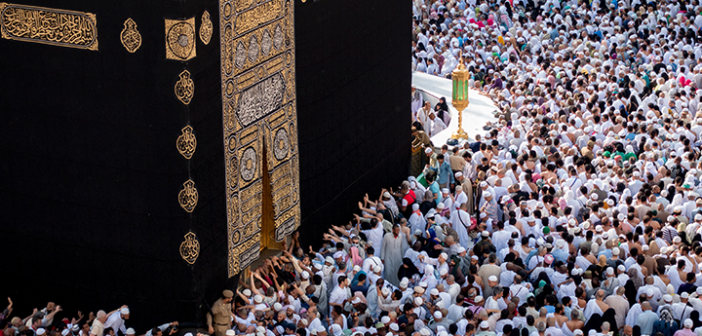•Despite recession, Nigerian governments spent billions on pilgrimage
It is an irony of a most grand and astounding scale: Nigerian governments at both federal and state levels have continued to seek to beat the most immoral paths to the ‘Holy Lands’ of Mecca and Jerusalem. The prodigal practice of government sponsoring Muslim and Christian faithful to observe annual pilgrimage must have started since independence; but despite sustained protestations, this wasteful and blatantly thoughtless practice has continued till today.
In fact, it may have reached a crazy crescendo today as even a lot more state resources are pumped into this extravagance notwithstanding the deep economic recession in the country. For instance, so far this year, a mind-numbing N137 billion has reportedly been spent on sponsoring Muslim faithful alone to Saudi Arabia. This obviously is in repudiation of the crippling recession in the land, the internal ‘refugees’ crisis in the northeast and poverty ravaging the people across the country.
According to figures from the National Hajj Commission of Nigeria (NAHCON), no fewer than 91,000 made the trip to Mecca this year. Christian faithful are preparing to visit Jerusalem and most of them would also be at the expense of state and federal governments. By the time they return, Nigeria may have disbursed at least N200 billion, largely from the treasury and all of it converted to scarce foreign exchange.
The Federal Government may well be the worst culprit, throwing in massive forex waiver every year. Last year, while official rate was N318.9 to a dollar, the Federal Government, in a profligate bonanza, handed funds to pilgrims at a concessionary rate of N197 per dollar. The loss to the country in this singular transaction was the difference of N121.9 multiplied by 65,167 pilgrims (at $1,000 per pilgrim). This comes to tens of billions of naira.
While we may consider Abuja’s participation in this illicit disbursal of state funds subtle, nearly all the states have been brazen if not wanton in applying state’s funds in what is after all, no more than another private trip or holiday abroad.
Here are a few samples: Borno State which has suffered a maelstrom of terrorists’ carnage in the last few years said it spent N500 million for the welfare of about 2,645 pilgrims in 2014; Bauchi State which is also in the troubled northeast zone reportedly spent about N263 million this year.
Some others are Kano State which last year said it had abolished state sponsorship of Hajj but is said to have doled out N3 billion already this year. The sum is supposedly for sponsoring clerics and medical personnel on Hajj. Sokoto State reportedly spent N91 million; Katsina about N1 billion annually; Taraba State released N288 million while Plateau which had vowed to stop the practice, sponsored over 600 pilgrims to Mecca, with the explanation that it was making the “sacrifice as a result of the relevance of the holy pilgrimage to the citizens of the state.”
But Kaduna may be the only state to have lived to its words not to concern itself with this matter of faith. Governor Nasir el Rufai had said in 2015 that the state could no longer afford the luxury of sponsoring people to Mecca and Jerusalem. He noted that in 2014 alone, the state expended about N1.5 billion. The state’s name does not appear on the NAHCON list.
For decades, this matter had been on and for so long, Nigerians have kicked against it. The issue is commonsensical enough if not elementary. State must keep away from meddling in issues that are purely religious and personal; to spend state funds in this manner is sheer recklessness and licentious abuse of office.
We understand the political motives behind some of the decisions to sponsor people on such religious jamborees but we aver that it is indeed immoral and opportunistic to so deploy state funds. Not in the face of backlog of unpaid workers’ salaries, pension arrears and dilapidated infrastructure. It is symptomatic of poor judgment, poor management acumen and abuse of office.
We urge governors especially to stop this profligacy forthwith.
-The Nation (Editorial)




